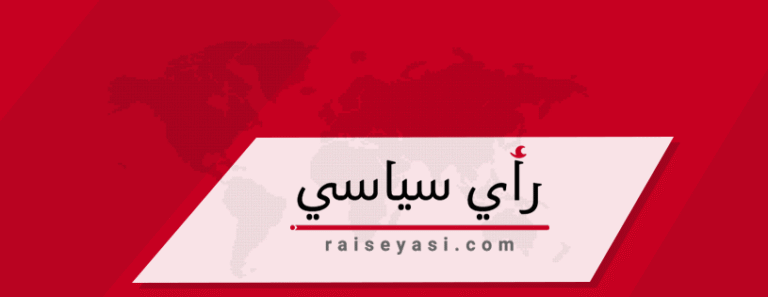By Andrey Kurkov – The Guardian:
As Russian drones and missiles continue to rain down death, the prospect of a Putin-Zelenskyy meeting seems unlikely
It was night in Ukraine when President Trump met President Putin in Alaska – a night during which Russia shelled only frontline Ukrainian cities. People in Kyiv, Lviv, Odesa, Dnipro and even Kharkiv could sleep, but they did not. They were waiting for news from Alaska. I was also awake and watching the news feed, aware that this meeting would lead to nothing, or worse, something bad for Ukraine. But in difficult, seemingly hopeless situations, human nature is prone to desperate optimism. In the middle ages, people often hoped for a miracle, forgetting about the logic of events. So, the night of 15 August was a night of hope for a miracle, which, of course, did not happen.
Unlike on the eve of the Alaska meeting, in Ukraine, there was no particular tension in the buildup to the meeting of European leaders at the White House on Monday, despite images of a hugely powerful team arriving in Washington. Ukrainians seemed to sense that this meeting had to be visually positive in order to push into the shade the Alaska meeting, which ended in nothing, if not actual failure.
The meeting demonstrated, in equal measure, the continuation of Europe’s support for Ukraine and Europe’s concern over the unpredictable position of President Trump, for whom the goal is simply a quick end to the war, rather than achieving a fair peace.
A fair peace, that is the liberation of territories seized by Russia and the restoration of Ukraine within its constitutional geographical borders, is increasingly becoming a dream that only Ukrainians have the right to cherish. Our partners have fallen quiet about this obvious prerequisite to a fair peace, although they do not openly talk about the opposite – about the “need” to yield to the “inevitable” loss of a large part of Ukrainian territory.
While the meeting in Alaska was greeted with hundreds of ironic comments on social media, Ukrainians took the White House gathering much more seriously. They do not overestimate the outcomes, but they are quietly satisfied to see President Trump looking cheerful in such obviously pro-Ukrainian company.
A bilateral meeting between President Zelenskyy and Putin is viewed as unlikely and Ukrainians are sure that Putin will do everything possible to avoid one. Putin has repeatedly questioned Zelenskyy’s legitimacy as president and meeting the Ukrainian leader would fly in the face of that stance. But, if we try to imagine how a bilateral meeting might go, logically an easy issue should be dealt with first – a minor question on which agreement could be achieved, paving the way for more difficult topics.
But today, between Ukraine and Russia there are no easy issues. The exchange of prisoners of war and the return of Ukrainian children and civilians from Russia to Ukraine have long been addressed with a degree of success by a separate team of employees. All other points for discussion are extremely difficult; for example, a mutual ceasefire or a mutual cessation of shelling with missiles and drones, or the status of captured territories and territories that Russia is still planning to capture.
The format of such a tete-a-tete meeting is therefore much more likely to be two short monologues, but certainly not a dialogue. A three-person meeting with President Trump as a moderator could be more productive, but surely Trump will only agree to this if he is confident that at least something will be achieved. Otherwise, again, as after the Alaska meeting, his reputation will take a beating.
For most Ukrainians, the very fact of a joint visit to Washington by President Zelenskyy and the leaders of the European Union and Britain is more important than the post-meeting announcement about the agreement on the purchase of US weapons by Europe for Ukraine, which has long been understood as a done deal.
The most interesting aspect of the meeting – the content of the telephone conversation between Trump and Putin after the tete-a-tete with Zelenskyy – remains an unknown, but press reports pointing to Hungary as a potential meeting place are worrying. Putin’s visit to Alaska was presented by Russian media as a victory – Russia’s strongman breakout from global isolation. A meeting on EU soil, if it does take place, will be presented as Russia’s final victory in its fight to make the civilised world recognise its right to violate any international law without bearing the least responsibility for violating the rights of other states to a peaceful life within their geographical borders.
When the White House talks ended, Russian drones and missiles attacked energy infrastructure facilities in the Poltava region. Dozens of explosions thundered across the cities of Kremenchuk and Lubny. Residents were unlikely to be interested in the results of the White House meeting the next morning.
This week has seen the mutual escalation of military action. Many Ukrainian cities have been hit hard but Russia has also felt the power of Ukrainian drones, which have seriously damaged large oil refineries and exacerbated Russia’s gasoline shortages. At the same time, the Russian foreign minister, Sergei Lavrov, has declared as totally unacceptable Trump and European leaders’ proposals to introduce European peacekeeping troops into Ukraine. Putin has also made it clear that a meeting with Zelenskyy would be possible only if Ukraine first agreed to all of Russia’s demands. In other words, if Ukraine agreed to capitulate.
Thus, all of Trump’s peace plans once again have turned out to be an illusion, and the only person who has not yet realised this is the US president. Perhaps the Russian missiles that exploded on Thursday at the American electronics plant Flex, located in western Ukraine, near the border with Hungary, were meant as a clarifying message for Trump. Both the production lines and warehouses of the US plant, which had been operating since 2012, were destroyed.
Putin’s explosive message was directed to at least two addressees: Trump, who must now understand that Putin is no longer interested in telephone conversations or invitations to Alaska, and the Hungarian prime minister, Viktor Orbán. Orbán thought Russia had agreed to spare the Zakarpattia region of Ukraine and its ethnic Hungarian population in return for his pro-Russian stance. Recently, however, Orbán has felt pressure to alter his position. In a phone call to the Hungarian prime minister, Trump insisted that Orbán should not interfere with Ukraine’s possible accession to the EU.
Perhaps it was during this conversation, in order to improve the mood of the US president, that Orbán suggested Budapest as the place for a one-on-one between Zelenskyy and Putin, hoping that the next meeting in the presence of Trump would also take place in the capital of Hungary. Putin doesn’t like it when someone decides for him where, and with whom, he should meet.


